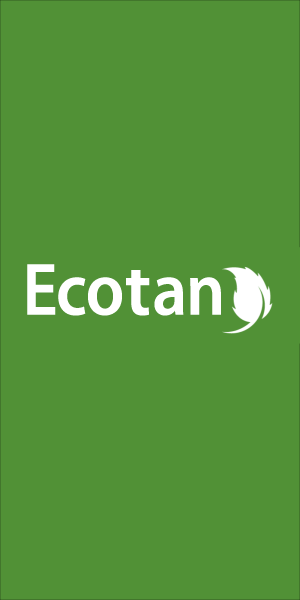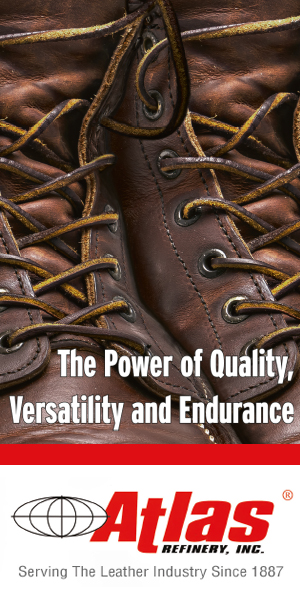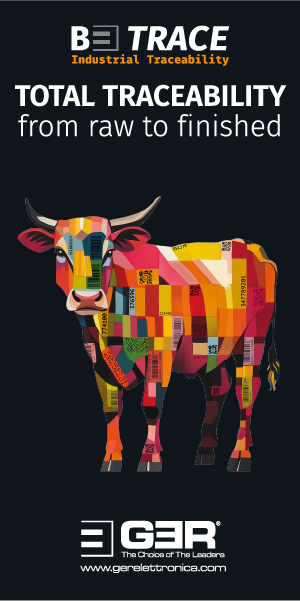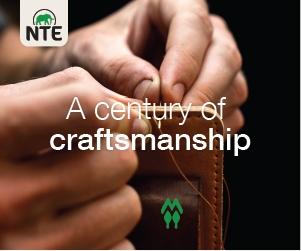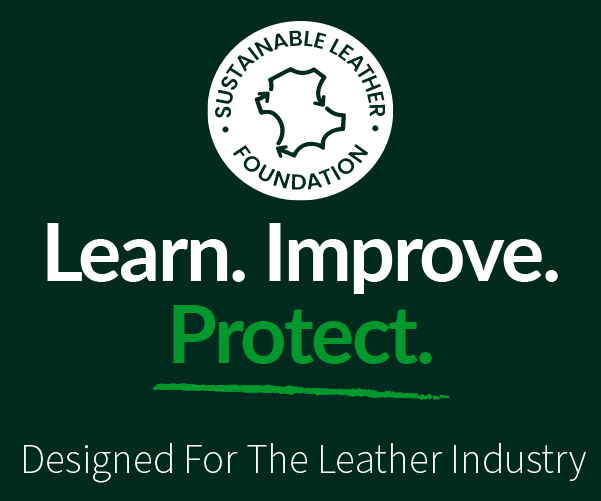Shifting sands

French company Authentic Material is providing a new materials stream from leathergoods waste, with backers including Chanel and Cuir Invest.
The inspiration for a leather sector start-up company can come from all manner of objects and ideas, but horned handles for traditional knife-making and powder metallurgy for aeronautics must be among the more unusual segues. French entrepreneur Noemie Dumesnil was working in these two areas when she discovered many traditional ‘made in France’ knives with horn handles used horns sourced from outside the country, as French cows provide insufficient material. The solution was to apply powder metallurgy techniques to horn powder, allowing it to be densified into a new material without binders. This process enabled them to produce knife handles that were entirely ‘made in France’, including the horn. This research led her to leathergoods makers, who expressed a desire to find a use for their complicated offcuts and waste, for which they were struggling to find a home. “They told us they did not know what to do with this waste. Legislation says they cannot destroy the scraps any more,” Ms Dumesnil told World Leather.
Leather production generates waste at every stage, from the tannery to the leathergoods workshop. In bag making production, for example, up to 50% of the leather can be discarded, according to Ms Dumesnil, but various tanning processes and the associated chemicals, finishes and dyes make the waste hard to recycle. Authentic Material, established in 2016 by Ms Dumesil and Vincent Menny, has developed a way to analyse and process this waste: everything can be recycled, provided the supplier has separated them by type of tanning.
“To be used as an input, leather must be worked, and grinding a soft material is more complex than it seems,” says Ms Dumesnil. “Mechanical grinders produce a heterogeneous mixture with variable properties. Authentic Material's leather micronisation technologies provide significant competitive advantages. They guarantee the production of a high-quality powder. Dense and homogeneous, it can be incorporated up to 50% by volume and offers a high-performance material.”
The patented processes turns the pieces of leather into a ‘sand’. From there it can make two materials, aimed different markets. ‘Pheonix’ is produced by heat pressing the powder into molds. It results in a 100% natural material made entirely from recycled materials, with no binders or additives. Applications include jewellery and accessories, interior design and works of art, with “plenty of room for experimentation”. “This range is not meant to recycle big quantities of leather, but is geared towards fine craftsmanship and offering a well-known material in a novel form,” she explains. “From a drawing, Authentic Material can produce leather powder and molds to suit clients’ needs.”
Drop-in replacement
QILIN is a thermoplastic material made from 50% leather waste and 50% bio-sourced or recycled plastic, acting as a ‘more sustainable’ alternative to thermoplastic polyurethane (TPU), poly-propylene and other plastics. Delivered in granule form, QILIN is compatible with standard plastics processing technologies – such as coating, injection moulding, thermoforming, calendaring and 3D printing – making it suitable for a wide range of applications. “When we develop a QILIN formula for a client, we ask three questions: what is the brand’s engagement in terms of recyclability and bio-sourcing? What are the project’s mechanical constraints? And what price are they willing to pay? From that base, we build the formula,” explains Ms Dumesil. The leather powder can also be combined with rubber to make soles for shoes.
The process has been honed to process companies’ leather waste on an industrial scale at Authentic’s facility in the Toulouse region. With lifecycle analysis (LCA) in mind, the company has been mapping its energy consumption so clients can be provided with a transparent and data-driven LCA for its products.
“We are aiming for two major objectives for QILIN: first, to increase the usefulness of natural material, and secondly, to test a wider panel of bio-sourced or recycled polymers and ensure their chemical alliance with our leather powder, without calling for other additives. Our competitive edge is that we work with just those two ingredients, the quality of our leather powder means that we do not need additives. From a commercial perspective, the aim is for QILIN to penetrate more markets and continue to expand in Italy,” she says. “With Pheonix, our goals are more about sales and marketing strategy. The focus is more on France with the major luxury maisons, namely for fashion and lifestyle accessories.”
Chanel’s nod of approval
With incoming European Union legislation, brands will need to consider recycled materials and what happens to their products when they are no longer usable. The European Commission’s proposal aims to bring about a more circular and sustainable management of textile waste, in line with its Strategy for Sustainable and Circular Textiles. In particular, the Commission is proposing to introduce mandatory Extended Producer Responsibility (EPR) schemes for textiles in all EU member states. EPR schemes require producers to take responsibility for the entire lifecycle of their products. Under the proposal, the level of the financial contributions of the producers will be based on the circularity and environmental performance of textile products.
To comply, brands will be increasingly interested in designing circular products and seeking more sustainable processes and materials. Luxury groups are playing a role in bringing some of the “next-generation” or waste-using materials to market in their products – higher margins enable investment in the nascent technologies and processes. As part of a €5 million fundraising round in 2022, Chanel bought a minority stake in Authentic Material, alongside Bpifrance and Cuir Invest (the French leather association’s fund). The money enabled the company to buy machinery and move to the 700 square-metre site near Toulouse. Venture capital firms have also been interested: a previous fundraising enabled the purchase of a €1.5 million specially designed Roctool flexible thermocompression molding platform, resulting in higher production volumes.
These volumes could enable brands and manufacturers to find a more circular route for their waste and offcuts. Finished goods users include French accessories brand Polene, which turned its offcuts into QILIN and made a bag from “leather pearls” threaded onto waxed cotton cording. The bag’s base and handle are covered with stitched smooth leather, reflecting the expertise of artisans in Ubrique, Spain. “They made recycling glamorous and embraced the essence of circularity,” says Ms Dumesnil.
“At Authentic Material, we don't produce recycled leather; we recycle leather. The nuance is subtle but essential,” she concludes. “We transform leather scraps into new materials that don't compete with traditional leather, offering an effective solution for managing leather waste.”
Polene’s Solé bag takes its inspiration from net bags and the traditional technique of macramé. The ‘pearls’ are made from QILIN from its manufacturer’s production waste.
Credit: Polene








